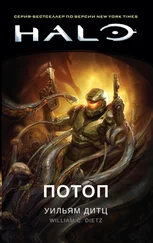“That’s nice,” National Security Advisor Toby Hall said. “But are we in control of the city’s population ?”
As with all officers of her rank, Moss was part politician and had a ready response. “No, not entirely,” she admitted. “The Confederates blew some floodgates and pumps as they left town. So some of the streets are under a foot or two of water. Criminal gangs and resistance fighters have taken advantage of that to slow our forces down. But the Army Corps of Engineers and navy Seabees are making repairs. And, once their work is complete, we’ll have full control of the city.”
“I believe that Admiral Moss is correct,” Doyle Besom put in. “But in spite of winning the physical fight, we’re losing the battle for the hearts and minds of Southern voters. According to the lies the Confederate propaganda machine is putting out, we were the ones who blew the floodgates as part of a plan to punish the citizens of New Orleans for supporting Lemaire. And that notion continues to get traction in Georgia, Florida, and Texas, where support for the Confederacy is growing stronger.”
Sloan cleared his throat. “Unfortunately, Doyle is correct. And, as many of you know, there’s another problem as well. Time continues to pass… And, based on the most recent intel, it looks like General Macintyre is making use of it to redeploy his troops, funnel supplies to them, and bring more mercenaries in from Mexico. That means we will have an even bigger fight on our hands once we break out of New Orleans.”
General Hern broke the ensuing silence. “I know Bo Macintyre, and he’s one tough son of a bitch. But, ready or not, he’s going down.”
Sloan heard the expressions of agreement, but his thoughts were with another Macintyre. Was Robin okay? He would find a way to check on her during the next couple of days…
And a way to get his ass off the fucking aircraft carrier.
CHAPTER 15

Sometimes we see the Civil War in movies and imagine these neatly aligned rows of men with muskets, walking in line to shoot each other. In reality the things that fascinated me were how absolutely ruthless and violent so many engagements were, how much suffering and how men were not prepared.
—SETH GRAHAME-SMITH
SOUTH OF BATON ROUGE, LOUISIANA
It was early morning, and the traffic was light. And that makes sense, Mac thought, as the POPEYErolled past a shot-up tanker truck. We control everything between here and Georgia. But the situation is in flux, and it doesn’t make sense to hit the highway unless you have to.
Mac was tired, but so was the rest of the battalion. After the river battle ended, the badly damaged Mississippi had been able to creep into the bombed-out city of Vicksburg and tie up at a dock. But the ship and the spud barge were going to require extensive repairs before they’d be operational again.
Initially, Mac thought that would provide the Marauders with a much-needed opportunity to get some rest and perform maintenance on their Strykers. But that hope evaporated when new orders arrived. The rebs had been able to flood sections of New Orleans, Operation Swordfall was stalled, and there was a need for reinforcements. Especially Strykers, which were well equipped to operate in an urban environment.
So Mac’s Marauders were put ashore. And, after a brief burial ceremony south of town, the unit left Vicksburg on Highway 61. It took the battalion south through Port Gibson, Fayette, and Natchez to the city of Baton Rouge. The 146-mile trip should have taken about three hours, especially in light traffic, but took twice that long because of the backups at checkpoints and a skirmish with Confederate resistance fighters.
Once the outfit arrived in Baton Rouge, Mac decided to laager up for the night rather than enter New Orleans while it was dark. The night passed uneventfully. And now, with fifty miles to go, Mac was scanning the terrain ahead. It was rural. Exits led to towns she’d never heard of, cell towers gave the hawks something to sit on, and woodlots separated farmers’ fields. The sky was mostly gray, but she could see hints of blue here and there and knew that fighter jets were battling to control the air over New Orleans. And that’s what worried her most… What if an enemy plane spotted the column? The battle would be brief and very one-sided.
The convoy ran into a backup about twenty minutes short of the city. Mac didn’t like that because her vehicles were especially vulnerable while standing still and hemmed in. Fortunately, there were marshes on both sides of the freeway. That made it impossible for infantry or armor to attack the battalion’s flanks.
Meanwhile, over on the northbound side of the freeway, a solid stream of refugees was fleeing New Orleans. Some rode in heavily loaded pickups, and others were packed into buses. There were people on bicycles, too… And motorcycles. One woman passed them on a Segway. All of which suggested that the city was in rough shape.
Finally, after fifteen frustrating minutes, a pair of MPs arrived from the south. They were riding motorcycles. Their job was to force civilian vehicles over into the right lane so that the military would have exclusive use of the left lane. As soon as she could, Mac ordered the POPEYE’s TC to pull out and lead the column forward. Progress was slow, but it beat the heck out of standing still.
By the time the battalion entered the city, Mac could hear the dull thud of artillery rounds going off and the distant rattle of gunfire. There was a crater where part of the freeway had been, but one lane was open, and some MPs were there to keep it from clogging up.
Consistent with the instructions she’d been given, Mac kept her vehicles on I-610 as I-10 veered to the right. Minutes later, she ordered the driver to exit onto Canal Boulevard. That took them to Navarre Avenue, which led into City Park. Union forces had taken control of Tad Gormley Stadium, and a wild assortment of troops were camped all around it.
An MP directed the Marauders to the area where teams of navy Seabees were using bulldozers to carve revetments out of what had been a well-manicured lawn. Mac ordered her vehicles to park out of the way so that the swabbies could complete their work, told Quick to let the battalion eat in shifts, and went looking for the man or woman in charge.
That person turned out to be a cheerful Marine colonel named Natasha Walters. When Mac found Walters, she was sitting on a crate of ammo spooning peaches into her mouth. “Don’t salute,” Walters said, as Mac started to do so. “This park is huge , it’s lousy with snipers, and they like to shoot officers. In fact, everything west of Wisner Boulevard is hotly contested. ‘Hotly contested’ being code for rebel-held territory.”
Mac laughed. “Roger that.”
Walters aimed her spoon at an adjacent crate. “Take a load off, Major Macintyre… And yes, I know who you are. Your Strykers will be a valuable addition to the menagerie we call Landing Force Sword. Based on what I’ve heard, your people eat bullets and shit fire… That’s exactly what we need around here. Once you’re organized, I want you to go out and sweep the streets. We’ve got plenty of trash to clean up, including criminal gangs and resistance fighters. Your job is to disrupt their operations, force them to keep moving, and kill as many as you can. Have you got any questions?”
Outside of “Roger that,” Mac had yet to get a word in edgewise. But there was no need. With very few words, Walters had been able to provide a cogent sitrep and a clear set of orders. “Yes, ma’am,” Mac replied. “One question. Where’s the ladies’ room?”
Читать дальше
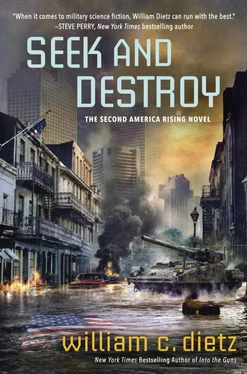

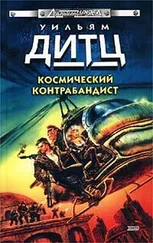
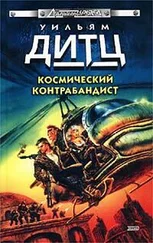
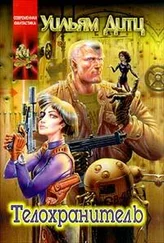
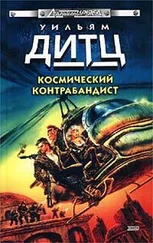
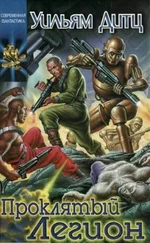
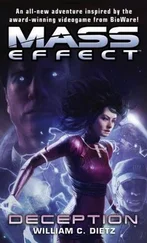

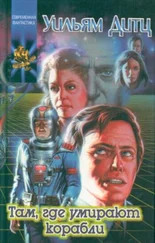
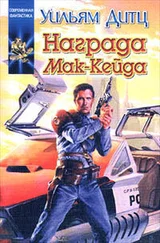
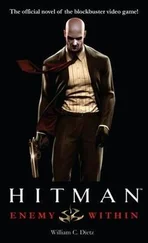
![Уильям Дитц - Избранные произведения в одном томе [Компиляция]](/books/389750/uilyam-ditc-izbrannye-proizvedeniya-v-odnom-tome-k-thumb.webp)
